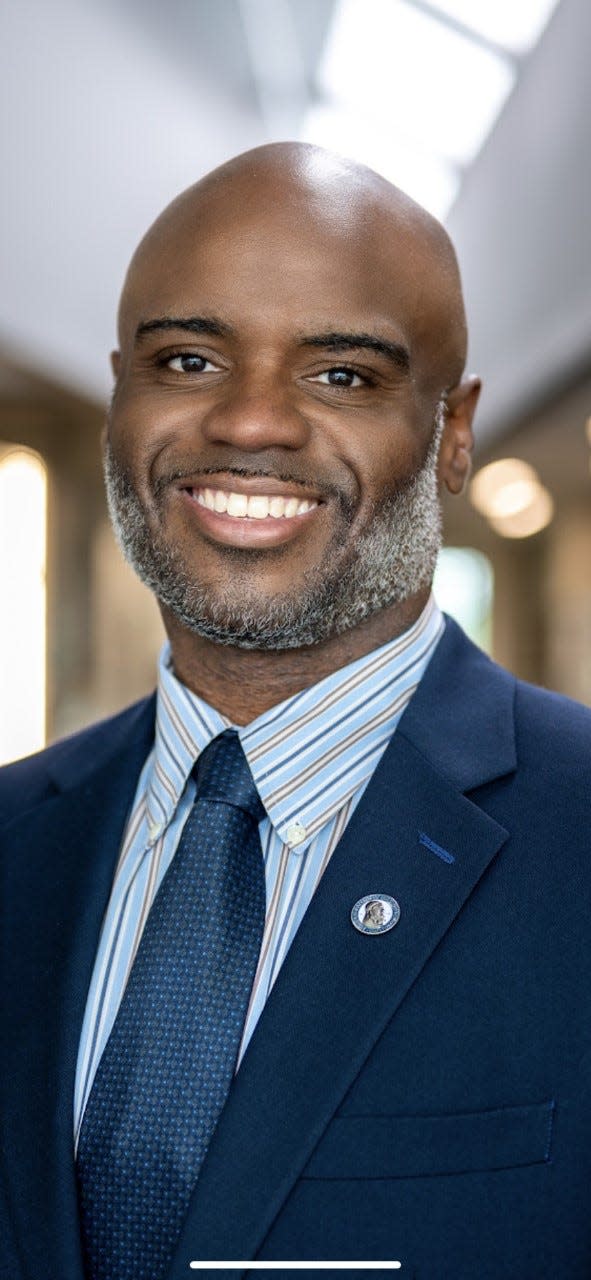Critical Race Theory: There's no risk in acknowledging inequities | My Turn
Critical Race Theory (CRT) was the focus of my doctoral studies and, at it's core, the central idea of the theory is pretty simple: that racism and it's effects are historic and embedded in our society, and often lead to the exclusion of People of Color and other marginalized groups. Why is this a point of controversy, even conflict?
I’m sure I rolled my eyes at whatever point I first observed that this idea had, indeed, become contentious. The primary thing that CRT does is it acknowledges inequities in society.
What does anyone have to lose by conceding that reality? Is it really controversial to recognize that an individual who comes from more financial means will, typically, have advantages over someone whose family had money problems?
This doesn’t mean that the more financially secure person should feel guilty. It should just help them understand their path may have not presented as many challenges as someone who did/does not have the same resources.
Additionally, what risk is there to individuals who do not live with a disability when we talk about the lived experiences of individuals who do live with a disability and how they navigate in society? And, if we understand that not every American practices Christianity, does that really impose on my ability to serve Jesus?

The thing about Critical Race Theory that most people don’t understand is the succinctness of theory itself. All we hear is, “We cannot allow this decisive concept to be taught in our schools.” The takeaway being that CRT is a dangerous, brainwashing curriculum that dishonors our nation’s history with slander and lies. In fact, CRT is merely a tool — a lens or perspective through which we can make sense of how people with different marginalized identities move throughout society.
An individual from a marginalized identity is easily defined as one who historically does not have as much societal power or authority. CRT simply provides an analysis for how race and other identities shape and influence our shared relationships. It asks that we consider and think about the questions posed earlier regarding socioeconomic status, religion, gender, disability, and other characteristics including, yes, race and ethnicity. The theory also encourages us to be mindful about the contributions that historically underrepresented people have made in our society.
American historian, author, and journalist Dr. Carter G. Woodson founded the Association for the Study of African American Life and History in 1926 and shortly thereafter established Negro History Week. Fifty years later, a Republican president, Gerald Ford, advocated that the nation should "seize the opportunity to honor the too-often neglected accomplishments of Black Americans in every area of endeavor throughout our history.” February was selected for Black History Month to coincide with the birthdays of Abraham Lincoln (Feb. 12) and Frederick Douglass (Feb. 20).
In his own way, Ford was articulating a principle of CRT, which is that we have tended not to focus on the experiences and realities of individuals in marginalized groups and that underprivileged groups may have perspectives exceedingly different than those with more societal power and influence.
More local opinion: Will Critical Race Theory be taught in Pocono schools?
President Ronald Reagan also seemed to understand the importance of honoring the history and legacy of People of Color and designated Hispanic Heritage Month as a month-long observance in 1988.
There is no reason for anyone to feel threatened by Black History Month, Hispanic Heritage Month, or Critical Race Theory. These are not ploys to indoctrinate our citizenry, but rather an opportunity to make us more informed and aware. In fact, let’s move toward honoring and acknowledging the history and contributions of historically underrepresented people beyond cultural heritage months. Embed a more comprehensive history of our society in our curriculum so we have a better understanding about where we’ve been and where we should be going.
G. Christopher Hunt, Ed.D., is vice president and dean for equity and inclusion at Moravian University in Bethlehem, Pa. His dissertation, "When Millennials Meet Baby Boomers: Multiple Case Study on the Lived Experiences of Black Male College Students, examined the intergenerational college journeys of 21 Black male college graduates from 1965 to 2018 including their challenges, triumphs, and strategies to achieve excellence.
This article originally appeared on Pocono Record: Guest opinion: CRT acknowledges inequities in society
